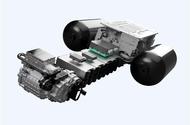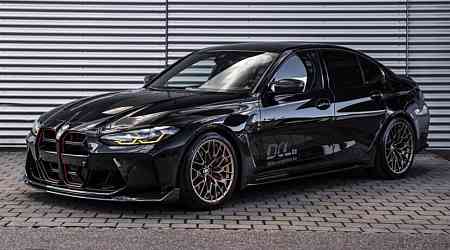The powertrain uses a 59bhp fuel cell working with a 16kWh 400V batteryViritech's 'ready-to-run' VPT60N powertrain is designed to suit a wide range of development vehicles
The first off-the-shelf hydrogen powertrain has been developed by UK engineering firm Viritech and is targeted at manufacturers that are looking to "rapidly deploy" FCEVs.
The powertrain, named VPT60N, has been created to demonstrate the advantages of FCEV technology over conventional electric powertrains.
Primarily for use in prototype and development vehicles, the system is designed to be as flexible as possible and can be used in road cars, light commercial vehicles, diggers and tractors, according to its developer.
Although the system is not road legal off the shelf, Viritech says it can work with manufacturers to homologate the powertrain.
Viritech CEO Timothy Lyons said: “The launch of the first powertrain in our vehicle powertrain family realises years of hard work at Viritech. We are excited to make available to OEMs and tier-one manufacturers a viable, available and easily integrated fuel cell powertrain which enables vehicle manufacturers to accelerate the delivery of fuel cell vehicles on and off highway.”
The powertrain uses a 59bhp fuel cell working with a 16kWh 400V battery. Both are combined with an electric motor producing 268bhp and 302lb ft.
It is likely to use a modular version of the firm's Graph-Pro technology, which means it has built-in mounting points to enable it to be fitted to the chassis of an existing vehicle without the need for additional framework, which reduces weight.
It also makes the pressure vessel - where the hydrogen is stored - especially robust to the point where it can withstand significant forces, such as in a crash. The hydrogen is kept in two containers that are pressurised to 350 bar.
Both the storage unit and battery can be reconfigured to suit a particular vehicle. A standardised unit pre-configured by Viritech is also available and will be used for vehicles that need to be developed and launched quickly.
The total range it provides is unspecified, but it is likely to draw learnings from the firm's Apricale hypercar, which targeted a range of around 500 miles.
The powertrain was developed at the MIRA proving ground in Warwickshire, where the UK firm has been able to use the expansive testing units on site, thereby saving on the considerable cost of building and homologating its own facilities.






























